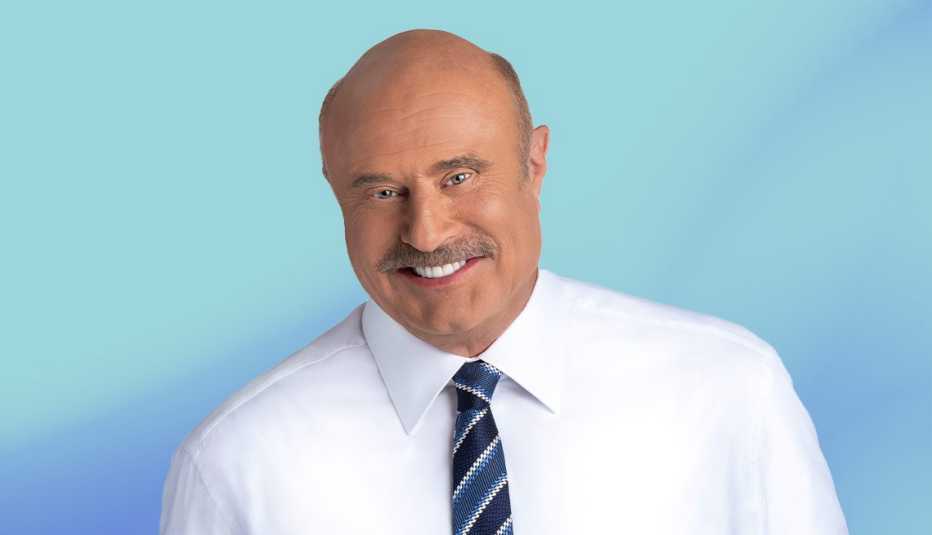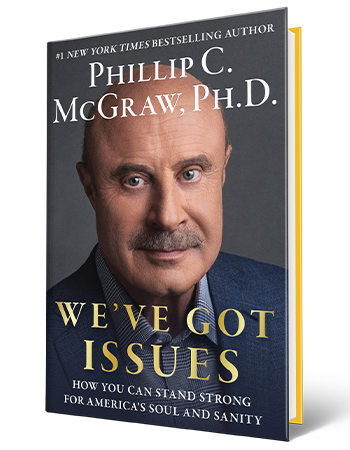AARP Hearing Center


Phil McGraw, 73, didn’t have plans to write another book but says he “really felt strongly that I needed to talk about things that I saw happening in the country.” In We’ve Got Issues: How You Can Stand Strong for America’s Soul and Sanity, he offers his trademark no-nonsense advice and strategies “to restore and support our country’s collective mental health.” He’s also relaunching his long-running talk show as Dr. Phil Primetime, premiering April 2 on his new cable TV channel, Merit Street Media. He shares his take on “cancel culture,” how challenging life experiences have shaped his results-driven attitude, and how he’s prioritizing life in his 70s.
This interview has been edited for length and clarity.
What’s the motivation behind your new book and cable TV venture?


Robin [wife Robin McGraw, 71] and I were sitting in the kitchen one night … and we were flipping back and forth between the news and this channel and that channel. And I was just kind of lamenting about, “Why won’t anybody just talk about what's going on instead of trying to spin everything? Spin, spin, spin, spin, spin. Just talk about the facts and talk about what’s important. The media’s driving me crazy.” And without even looking up from her plate, she said, “Well, you are the media. Why are you complaining about the media? Why don’t you do it?” That really kind of stung, and I realized that’s right.
What’s the one thing that you feel would help our country right now?
Learn to listen. You know, this “cancel culture” we’re in — I think it needs to be a “counsel culture.” We need to listen to one another instead of judging one another. Some people say stupid things. Sometimes we all do. And sometimes we get out over our skis and say things that seem like a good idea at the time. If we would sit down and say, “You know what? Let me talk to you about something, and see if I might get you to change your position.” We alienate so many people that could be great allies. If [only] we would just listen and have a dialogue instead of being judgmental and declaring somebody an enemy. So many people are willing to learn if we would just take the time to do it.
Have things shifted for you mentally in your 70s?
I’m a pilot, and I have been since my teens. There’s this old saying: One thing a pilot can’t use is the runway behind them.... You [get] to your 70s, and look over your shoulder, [and] there’s a lot of life behind you, and not very much ahead of you. It changes the way you value time.... It makes you say, “I’m not going to waste time doing things that I don’t really value or focusing on things that I don’t really care about.” It’s kind of paradoxical. It makes you a little selfish in that you want to do the things you want to do, but you also want to really spend time with the people you love and care about. The good thing is the things I care about happen to be the people I love, so I want to spend quality time with them.




































































You Might Also Like
AARP Members Only Access Celebrity Interviews
Read exclusive interviews with the biggest names in Hollywood and TV, best-selling authors and more high-profile personalitiesCarrie Preston
‘The Good Wife’ actress and star of Oscar-nominated film ‘Holdovers’ talks new CBS spin-off ‘Elsbeth, marriage and who inspired her as a childSavannah Guthrie
‘Today’ show host talks about her new book of essays ‘Mostly What God Does,’ Taylor Swift, idols in the news biz and her job as a momZiggy Marley
Musician reveals his father's final words to him, shares why Bob Marley’s music and message still resonate, and discusses the new biopic about himRecommended for You